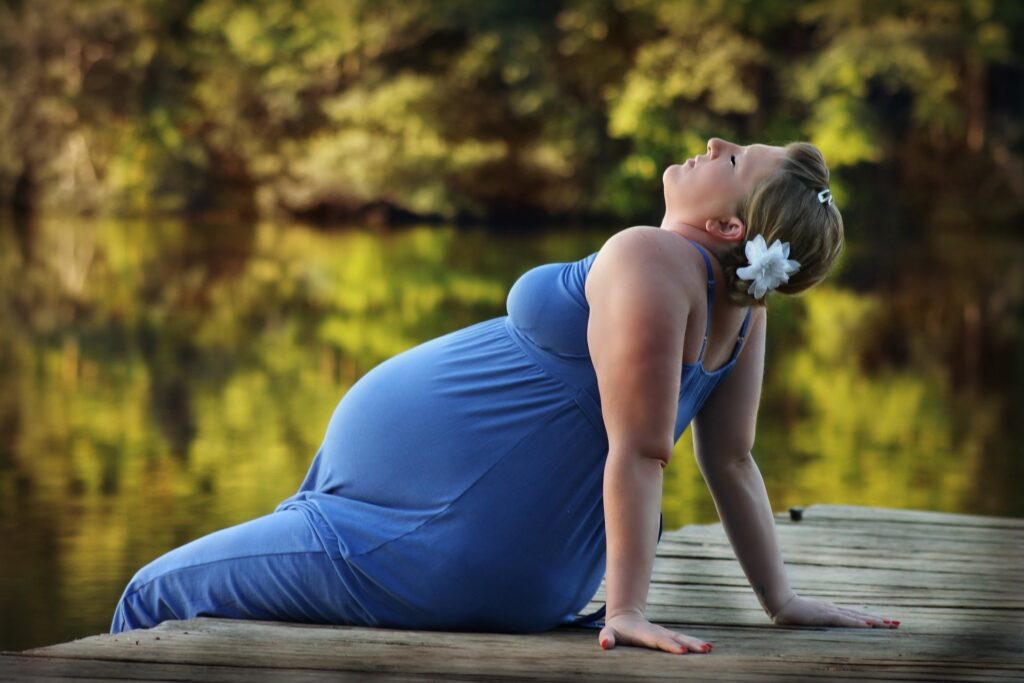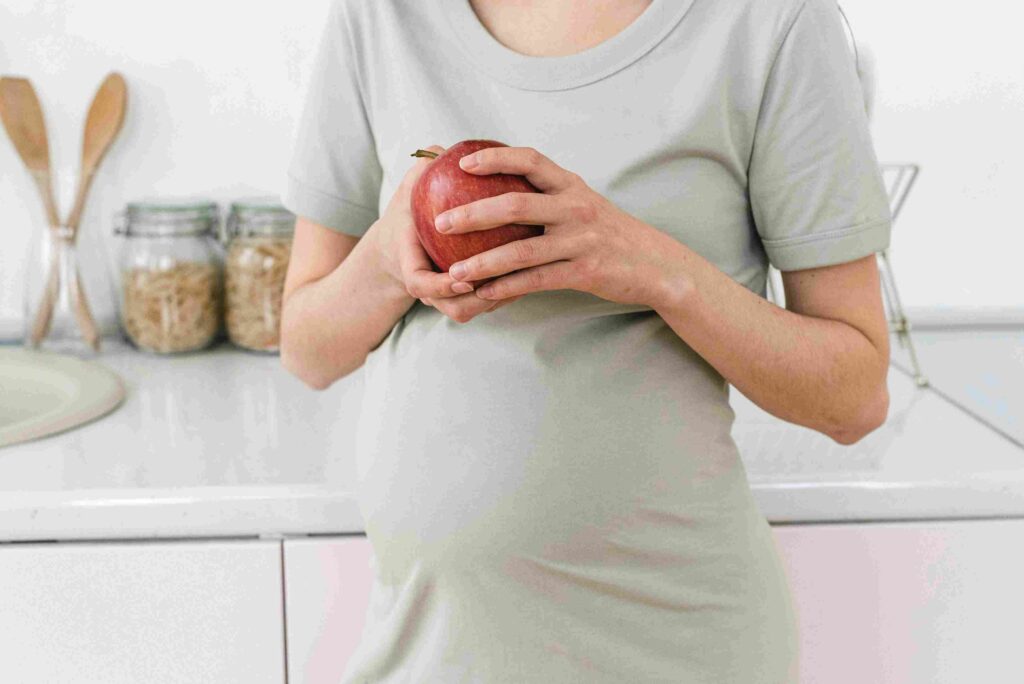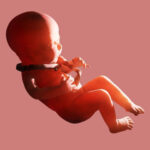Top 12 Pregnancy Symptoms That You Should Expect

Whether you planned for pregnancy or got the oops unplanned pregnancy, this article is for you. This article will walk you through the common symptoms of pregnancy. We will also answer frequently asked questions about pregnancy symptoms.
When Should I First Notice Pregnancy Symptoms?
Every woman’s body is unique, so pregnancy symptoms vary. You might experience pregnancy symptoms two weeks after conception or two months later. The Journal of Clinical Epidemiology states that 89% of women experience pregnancy symptoms 9 weeks after conception.
Note: Having these symptoms does not necessarily mean you are expectant. Now breathe in if you had unprotected sex and are not sure whether you “messed up”. The surest way to know if you are pregnant is to take the dreaded pregnancy test.
Common Pregnancy Symptoms
- Missed period
- Sore breasts
- High basal body temperature
- Constipation
- Fatigue
- Morning sickness
- Food aversions and cravings
- Spotting
- Frequent urination
- Cramping
- Weight gain
- Heartburn
1. Missed periods
Missed periods is the most common pregnancy symptom that you are likely to experience at the onset of pregnancy. A delayed period only raises your curiosity, hoping it to be true or wishing it was not.
Why do I miss my period?
You might ask. Every month, you experience a monthly period, or in other words, you menstruate.
Menstruation occurs when the ovum breaks, lowering your estrogen hormone levels and causing the uterine wall to thin and shed, resulting in blood flow.
When you miss the period after sexual intercourse, chances are that you could be expectant. What should I do if I miss my period?
Take a pregnancy test. This would help you know whether you are expectant or experiencing hormonal imbalance.
2. Sore breasts

Are your boobies tender and swollen?
There is a possibility that you could be expectant. Sore breasts, especially around the nipples, are early symptoms of pregnancy.
Sore breasts are a common occurrence, especially a few days before your period. However, heavy, swollen, and tender breasts could mean you are on board the pregnancy journey.
The distinguishing factor in sore breasts during pregnancy is that the tenderness and pain last longer. High progesterone and estrogen levels cause more blood flow to the breasts, making them tender.
“For how long will my breasts be tender, painful, and tender during pregnancy?”
I can’t promise you that it will go away after x number of weeks. For some women, the tenderness only lasts for a few weeks. But for others, well, the entire pregnancy.
“How should I manage to live with tender breasts?”
Get a comfortable bra if you have tender, swollen, and ticklish breasts due to pregnancy. A warm or cold compress also eases breast pain due to pregnancy.
3. High Basal Body Temperature
What is basal body temperature?
Basal body temperature refers to body temperature when you are at rest.
If you notice a spike in the basal body temperature weeks after intercourse, the big news might be coming. A rise in basal body temperature is normal during ovulation. However, if the basal body temperature stays over an extended period, it could mean you are pregnant.
Should we blame the hormones for the high basal body temperature?
Sorry, but yes. The high level of progesterone and estrogen during pregnancy increases blood flow to the body, hence, the high temperature.
What should I do if my basal body temperature is high?
After confirming you are pregnant, let the temperature keep shooting high. That won’t hurt you anyway. A cold bath might come in handy at some point.
4. Constipation
This might not be so common, but it is another pregnancy symptom.
You could be sitting comfortably, and then the urge to empty your bowels kicks in.
But when you get to the washrooms, nothing comes out. Except for passing gas.
Constipation during pregnancy might go away after the first trimester.
In other cases, you might have to endure constipation for the entire pregnancy.
“How can I manage constipation during pregnancy?”
You can use two tips to manage constipation during the tough pregnancy journey.
- take fiber-rich food and top it up with adequate water.
The fiber in the food reduces unpleasant bowel movements, hence, less constipation. On the other hand, the water fills up spaces that the constipation-causing gas could occupy.
- talk to your doctor- If you have been taking vitamin supplements, but they become a catalyst for explosive constipation, talk to your doctor. If tests confirm you are pregnant, your doctor will recommend changing vitamin supplements.
5. Fatigue
Ho-hum!
Is that you yawning?
Do you feel so exhausted of late, even when you have been idling all day long?
You should consider taking the pregnancy test, especially if you have had unprotected sex some weeks before.
Fatigue is common through the first trimester and tends to overwhelm most mothers-to-be.
“Why do pregnant women experience fatigue?”
The body is trying to accommodate the cute little thing in your belly. The body works around the clock to provide the embryo (recently fertilized egg) with the nutrients it requires for development.
The process causes your blood sugar and pressure levels to reduce significantly, making you feel sooo… weak. High progesterone and estrogen levels also leave you weak, especially during the first trimester.
“What should I do if I feel weak during pregnancy?”
If the pregnancy is giving you a run for your energy, don’t push yourself too far.
If you are feeling sleepy, take a nap. It is necessary.
If you are overwhelmed at the workplace, take a sick leave. You will be okay as the pregnancy progresses.
You should also take energy-boosting foods, especially during the first trimester.
6. Morning Sickness
Bagh…. Did you just throw up?
Do you feel so sick, with a high fever, saliva filling your mouth, shivers, and goosebumps, especially in the morning?
You could be, you guessed it right, expectant.
“What causes morning sickness during pregnancy?”
Morning sickness during pregnancy occurs due to a spike in hCG levels after fertilization of the ovum. The most common symptoms of morning sickness are nausea and vomiting.
“Should I see a doctor when I get morning sickness?”
More often than not, morning sickness goes on its own after a few weeks. But then, different people experience varying levels of morning sickness.
People who easily vomit or get morning sickness are more likely to experience extreme levels of morning sickness. In rare cases, the morning sickness might be overwhelming.
These tips can help you manage morning sickness during pregnancy:
- Drink non-caffeinated or low-caffeine tea.
- Take small servings of your favorite meal frequently.
- Eat bland foods rich in carbs, free from spices, and lots of fat.
- Eat water-rich fruits such as oranges, mangoes, and melons.
- Incorporate ginger into your diet; it relieves nausea and vomiting.
If the morning sickness symptoms persist, let your doctor advise further.
7. Food aversions and cravings

Another odd thing about pregnancy is how it can push you to like some awkward foods or hate others. Some pregnant women avert taking certain meals such as meat, especially if they are fatty and spicy.
Some of the foods that are common among pregnant women include ice cream, chocolate, and for others, soil!
“Why do pregnant women crave certain foods and hate others?”
Pregnancy is more than fertilizing your ovum and carrying the unborn baby to term. Food aversions are closely linked to a surge or drop in hormones.
There is a strong correlation between morning sickness and food aversion. Others argue that food aversion is an involuntary attempt by the body to protect the unborn baby against any harm from food.
On the other hand, food cravings are mostly associated with what the body lacks. For instance, craving for soil might be a way for the body to communicate that it is deficient in iron.
In some instances, however, the cravings and aversions might be due to an alteration of the hormones.
8. Spotting
Have you seen some pinkish or brownish discharge from your vagina? That could be a sign you are expectant. Spotting is an early pregnancy symptom and mostly occurs 6-12 days after conception.
Pregnant women often mistake spotting as the onset of their periods. What makes spotting unique is its distinct brown or pink appearance, instead of the scarlet color for periods.
“Why does spotting occur during pregnancy?”
After fertilization, the ovum moves down the fallopian tube and attaches itself to the uterus. As the zygote attaches to the blood-rich lining of the uterus, it causes a slight disturbance. That results in spotting in pregnant women.
The brown or pink discharge should not be a cause of concern because 25% of pregnant women experience implantation spotting. However, you can only be sure if the spotting is a sign of pregnancy by taking the test.
9. Frequent Urination
The frequency of peeing varies from time to time, depending on environmental factors such as temperature and fluids intake. However, during pregnancy, the frequency of urination goes up.
“What causes an increase in urination during pregnancy?”
There are several factors linked to the increase in urination during pregnancy:
After implantation, the HCG hormone increases, leading to increased urine production.
As the fetus grows, it exerts pressure on your bladder, making you feel the urge to pee frequently. However, this only occurs during the later stages of the pregnancy.
“Should frequent urination be a cause for alarm?”
Frequent urination should not be a cause for alarm. If you are constantly peeing and are suspicious of pregnancy, take the test.
10. Cramping
Just like frequent urination and sensitive areolas and nipples, cramping is another early sign of pregnancy. The extent of cramping might be similar to menstruation or slightly vary.
“What makes a pregnant woman experience cramping?”
You might be confused about how to distinguish periods cramping and pregnancy cramping. However, this pro tip can help you distinguish between period cramping and pregnancy cramping.
- Pregnancy cramping occurs due to an increase in blood flow to the uterus.
- Period cramping is triggered by high prostaglandin levels, which shed the uterus lining.
If you are experiencing cramping and are no closer to getting your period, get the pregnancy test. You could be a few weeks pregnant without knowing it.
11. Weight Gain
As you close the first trimester, you might notice a slight or a huge increase in weight. However, most women only record a significantly high weight gain, mainly due to the irritating morning sickness.
Weight gain during pregnancy is associated with the body preparing itself to provide the unborn with all the necessary nutrients. Weight gain is also caused by the unborn baby accumulating extra layers of fat to insulate itself against the cold.
Finally, the baby is also growing and adding extra weight, which means the mother will also gain weight. You could be pregnant if you note that you are gaining weight and have experienced other symptoms.
12. Heartburn
Did you know that pregnancy causes nasty heartburn that can last throughout pregnancy?
“What causes heartburn during pregnancy?”
Heartburn occurs when the valve between the esophagus and stomach relaxes, leaving space for stomach acid to leak into the gut. The leaked acid results in heartburn which is an unpleasant experience, especially during pregnancy.
Other symptoms associated with pregnancy include:
- Acne
- Mood swings
- Heightened sense of smell
- CTA
- Swollen ankles
- Stretch marks
Don’t compare your pregnancy to another woman’s. The pregnancy symptoms in you could be very different from your colleague’s. As such, following your journey and avoiding unsolicited and misleading advice is prudent. If any symptoms overwhelm you, seek an expert’s advice and recommendation.



